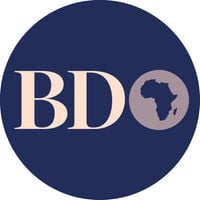
Treasury CS Ukur Yatani. FILE PHOTO | NMG
Summary
- Treasury secretary Ukur Yatani says in the latest disclosures total debt repayments, which are largely being driven by fast-maturing commercial and semi-concessional loans, amounted to Sh638.29 billion in the eight-month period through February 2021,
- This represented a 32.13 per cent jump over Sh483.08 billion in a similar period a year earlier, powering debt service costs to become the single largest expenditure from the exchequer in the period.
Debt servicing costs have for the first time surpassed recurrent expenditures such as salaries, allowances and government administrative expenses, underlining the pressing burden on taxpayers.
Treasury secretary Ukur Yatani says in the latest disclosures total debt repayments, which are largely being driven by fast-maturing commercial and semi-concessional loans, amounted to Sh638.29 billion in the eight-month period through February 2021,
This represented a 32.13 per cent jump over Sh483.08 billion in a similar period a year earlier, powering debt service costs to become the single largest expenditure from the exchequer in the period.
The data shows cash wired to domestic and external creditors was Sh5.71 billion, or 0.9 per cent, more than the Sh632.58 billion State ministries, departments and agencies spent on government’s general administration expenses and wages.
The Jubilee administration has ramped up spending since 2013 to build new highways, a modern railway, bridges and electricity plants.
Increased expenditure has driven up borrowing from Sh1.89 trillion in June 2013 to projected Sh7.66 trillion by end of the current financial year in June to plug resultant budget deficit because of persistently gaping revenue shortfalls – pointing to the country’s weak forecasting methods for future revenues and fiscal deficits.
The debt financing cost in the July 2020-February 2021 period was Sh294.84 billion, or 85.85 percent, more than the Sh343.45 billion channelled to development projects (Sh163.91 billion) and the 47 counties (Sh179.55 billion.
The Parliamentary Budget Office – a professional unit which advises lawmakers on financial and economic matters – says “debt repayment may be crowding out development expenditure”.
The unit has cited reduction in the share of development expenditure to gross domestic product (GDP) – the value of economic output – from 6.2 per cent in Jubilee administration’s first financial year in office (2013/14) to 5.9 per cent in the year ended June 2020.
“Whereas development spending as a share of GDP decreased, other major expenditure categories such as expenditure on wages and salaries of national government employees, expenditure on operation and maintenance, pensions and transfers to counties remained relatively unchanged between 2013/14 and 2019/20,” the PBO wrote in a report late January.
The Treasury in January got a reprieve on bilateral debt obligations after the Paris Club of creditors deferred Sh32.9 billion in debt obligations that were due this fiscal year ending June.





No comments :
Post a Comment